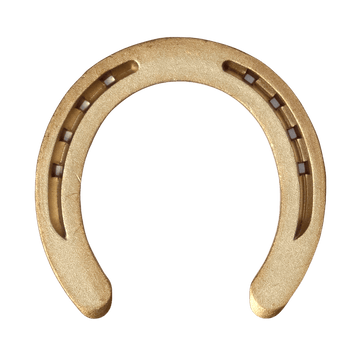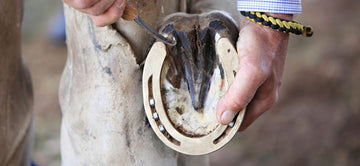Introduction to Dog Care
Caring for your dog goes far beyond providing food and water—it requires a lifelong commitment to their physical and emotional well-being. The health and welfare of companion animals are paramount, and resources are available for veterinarians, breeders, and pet owners to ensure their pets thrive.
Whether you’re a new dog owner or a seasoned pet parent, understanding your dog’s essential needs is the foundation of effective canine health care. Pet owners should be aware of their pets' health needs and consult their veterinarians regularly.
Dogs thrive when they have proper nutrition, regular exercise, and consistent veterinary care. Preventative measures like vaccinations, deworming, and flea and tick prevention are crucial to warding off illnesses. Becoming familiar with common canine health issues—such as heartworm disease, hookworms, and skin infections—can also help you stay ahead of potential problems.

Veterinary Care and Advice
Why Routine Vet Visits Matter
Routine veterinary visits are one of the best tools for early detection and prevention. Dogs should receive a wellness exam at least once per year, and more frequently as they age. These visits typically include:
-
Physical exams
-
Dental checks
-
Heartworm testing
-
Vaccination updates
By staying on schedule, you help your vet track your dog’s health history and check for conditions like heartworm disease through yearly blood tests. This also provides an opportunity to discuss any health changes with your veterinarian during these visits.
Vaccines and Medications
Your veterinarian will tailor a vaccination schedule based on your dog’s age, breed, environment, and travel habits. Core vaccines often include:
-
Rabies
-
Distemper
-
Parvovirus
-
Adenovirus
There is an ongoing debate regarding the necessity of annual booster vaccinations. Recent data suggests immunity may last longer than previously thought, leading to differing opinions on how frequently vaccinations should be administered. It is important to seek veterinary advice on vaccination programs.
Non-core vaccines may be recommended based on regional risks, such as Lyme disease or leptospirosis.
Preventative medications for fleas, ticks, and intestinal worms (including hookworms, roundworms, and tapeworms) are also essential for your dog’s comfort and health. Expert guidance from veterinarians is crucial in determining the appropriate vaccination schedule.
Spaying and Neutering
Spaying or neutering your dog not only prevents unwanted litters but also helps reduce the risk of certain cancers and behavioral issues. It’s a proactive measure endorsed by veterinarians as part of a complete health plan.
Household Safety Tips from Vets
Veterinarians often highlight common household hazards like:
-
Cleaning supplies
-
Chocolate and xylitol (toxic to dogs)
-
Small items that can be swallowed
Ask your vet about dog-proofing your home, especially if you have a curious puppy. It's crucial to keep hazardous items, such as cleaning supplies and medications, out of reach of dogs to ensure their safety.
Preventative Care Measures
Monthly Medications and Protection
Preventing illness is more cost-effective—and less stressful—than treating it. Monthly preventatives play a key role in protecting dogs from:
-
Heartworm disease, which is transmitted by mosquitoes
-
Flea infestations that can lead to tapeworms and dermatitis
-
Tick-borne illnesses like Lyme disease
It's also crucial to consider the importance of treatments for parasitic infections, as they can prevent serious health issues and ensure your pet's well-being.
Talk to your vet about the best option—oral chew, topical treatment, or flea/tick collar. Expert guidance from organizations like the Companion Animal Parasite Council is essential in recommending preventative measures for heartworm and intestinal parasites, emphasizing the need for year-round prevention.
Annual Checkups and Wellness Tests
Annual blood work and fecal exams help monitor health aspects and screen for underlying conditions. Analyzing fecal samples can diagnose intestinal parasite infections by detecting worm eggs or actual worms, ensuring early intervention for issues like diabetes, thyroid imbalances, or parasitic infections before symptoms appear.
Diet and Exercise for Preventative Health
Preventing obesity through measured feeding and daily exercise is key to a longer, healthier life. Obese dogs are more prone to joint issues, heart disease, and diabetes.
Add mental stimulation through training, puzzle toys, or scent games to support both cognitive and physical health. Community interactions, such as play with other dogs at parks, also play a crucial role in ensuring a dog's well-being.
Common Preventable Issues
-
Skin inflammation due to allergies or fleas
-
Dental disease from poor oral hygiene
-
Ear infections in floppy-eared dogs
Being proactive helps avoid expensive and painful conditions.
Dental Care and Hygiene
The Importance of Oral Health
Just like humans, it is important for dogs to receive regular dental care to prevent plaque buildup, gingivitis, and periodontal disease. Bad breath, red gums, and difficulty eating can be signs of oral health problems.
Daily Brushing and Diet Support
Brushing your dog’s teeth several times per week—or daily—is ideal. Use:
-
Dog-specific toothbrushes
-
Dog-safe toothpaste (never human toothpaste)
-
Dental chews and water additives for added support
A diet rich in essential nutrients also supports gum and tooth health.
Professional Cleanings
Your vet may recommend annual dental cleanings under anesthesia to remove tartar beneath the gumline, especially if your dog is prone to dental issues.
Nutrition and Diet
Why Diet Matters
Nutrition is one of the most important factors in your dog’s health. A balanced diet provides:
-
Protein for muscle development
-
Fats for energy and coat health
-
Carbohydrates for digestion
-
Vitamins and minerals for immune support
Types of Dog Food
-
Dry kibble: Affordable and easy to store
-
Wet food: More palatable and hydrating
-
Raw or homemade: Offers full control, but must be balanced and vet-approved
Choose a diet that fits your dog’s age, breed, weight, and health status.
Managing Weight and Preventing Obesity
Measure your dog’s meals, avoid overfeeding, and limit treats to no more than 10% of their daily caloric intake. Combine proper nutrition with daily walks and playtime.
Safety Precautions
Avoiding Common Hazards
Keep dogs away from:
-
Toxic foods (chocolate, grapes, onions)
-
Electrical cords
-
Open balconies and pools
-
Hot cars or direct sun without shade
It is crucial to keep hazardous items, such as chemicals and electrical cords, out of reach of dogs to ensure their safety.
Microchipping and ID Tags
Microchipping provides permanent identification and dramatically improves the chance of reunion if your dog is lost. Always pair it with a collar and tag that includes your contact information.
Vaccination for Public Safety
Rabies, one of the deadliest zoonotic diseases, is preventable through routine vaccination and required by law in many regions.
Home Safety Tips
Secure trash bins, use baby gates to limit access, and store medications and chemicals in locked cabinets. It is crucial to keep hazardous items, such as cleaning supplies and medications, out of reach of dogs to ensure their safety.
Grooming and Coat Care
Benefits of Grooming
Grooming keeps your dog’s coat healthy and allows early detection of lumps, fleas, or skin conditions.
Community interactions, such as play with other dogs at parks, also play a crucial role in ensuring your dog's well-being.
Brushing and Bathing Basics
Brush your dog’s coat:
-
Daily for long-haired breeds
-
Weekly for short-haired dogs
Use dog-specific shampoo and bathe only as needed—overbathing can strip natural oils.
Nail and Ear Care
Trim nails regularly to prevent discomfort and posture problems. Clean ears (especially for floppy-eared breeds) to avoid infections.
Grooming Tools
-
Slicker brushes for detangling
-
De-shedding tools like the Furminator
-
Nail clippers or grinders
-
Canine ear-cleaning solutions
Emergency Preparedness
Creating a Plan
Keep a first aid kit on hand with:
-
Gauze and antiseptic
-
Tweezers and scissors
-
Emergency contact numbers
-
Copies of medical records
It's important to be prepared for emergencies by having these items readily available and understanding their use.
Responding to Emergencies
Learn to recognize signs of:
-
Heatstroke
-
Seizures
-
Choking
-
Allergic reactions
Know where the nearest 24-hour vet clinic is located and have transport options ready.
Routine Can Prevent Crisis
Routine prevention of diseases like heartworm, rabies, and distemper reduces the likelihood of emergency situations.
Staying Informed
Keeping Up with Veterinary Science
Veterinary medicine is always evolving. Stay informed by:
-
Reading vet-reviewed websites
-
Joining online dog owner communities
-
Subscribing to pet health newsletters
Research plays a crucial role in enhancing knowledge on diagnostics, drugs, and treatments.
Monitoring Your Dog's Health at Home
Track changes in:
-
Appetite
-
Energy levels
-
Bathroom habits
-
Skin and coat condition
Regular veterinary examinations are crucial to monitor your dog's overall health. Analyzing fecal samples can help diagnose intestinal parasite infections, ensuring early detection and treatment.
Early detection is often key to successful treatment.
Common Health Issues
What to Watch For
-
Parasites: Heartworms, fleas, hookworms
-
Obesity: Leads to joint and metabolic issues
-
Diabetes: Requires diet management and insulin
-
Dental disease: Leads to pain and infection
Vet Support for Health Management
Work with your vet and experts to create a custom health plan that includes regular screenings and prevention strategies. Research plays a crucial role in enhancing knowledge on diagnostics, drugs, and treatments.
Frequently Asked Questions
How much does a wellness exam cost for a dog?
Costs vary by location but typically range from $45 to $100. Additional services may increase the total.
How can I take my dog to the vet if I can't afford it?
Look for low-cost clinics, nonprofit organizations, or CareCredit, a financing option for pet medical expenses.
What breed of dog do vets not recommend?
Veterinarians generally avoid recommending specific breeds prone to severe genetic issues, such as brachycephalic breeds with respiratory problems. However, suitability often depends on lifestyle, not just breed.
What if my dog has an emergency and I have no money?
Call local shelters or vet offices for guidance. Some areas have emergency grant programs or payment plans.
Conclusion
Keeping your dog healthy is a journey built on routine care, vigilance, and love. From regular vet visits and proper nutrition to grooming and preventative medication, every decision you make influences your dog’s long-term well-being.
By following these tips for effective canine health care, you’ll not only extend your dog’s life but also enhance the quality of every moment you share together.
A happy, healthy dog is more than a pet—they’re a joyful companion, a loyal protector, and a true family member.











